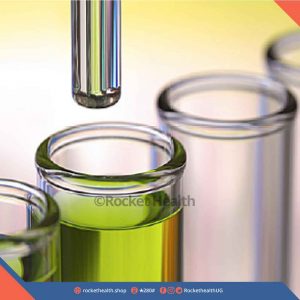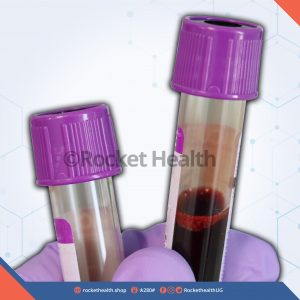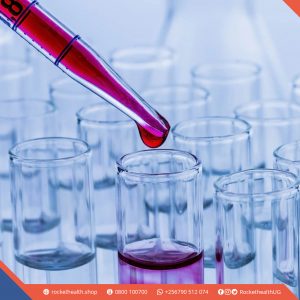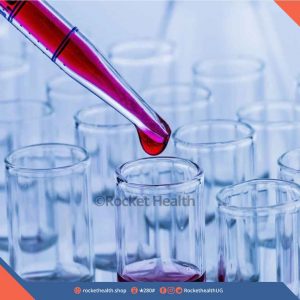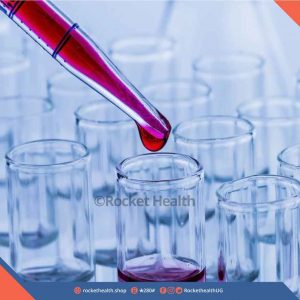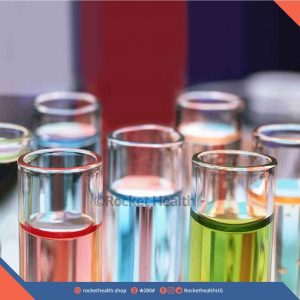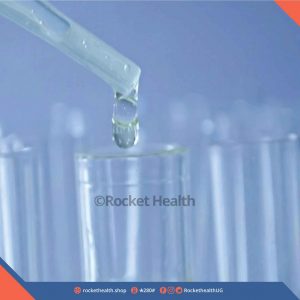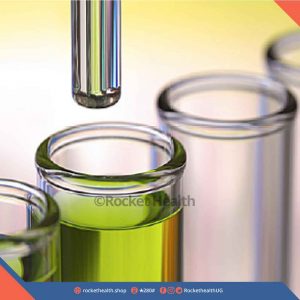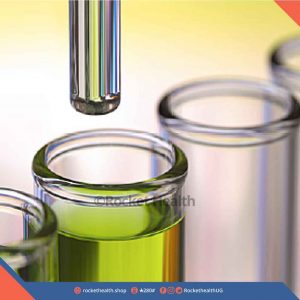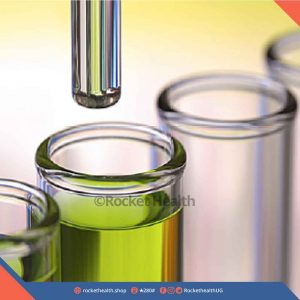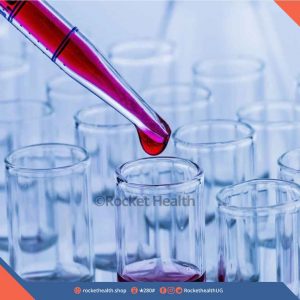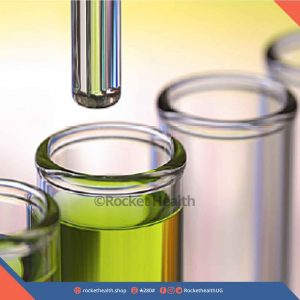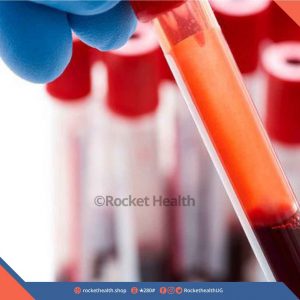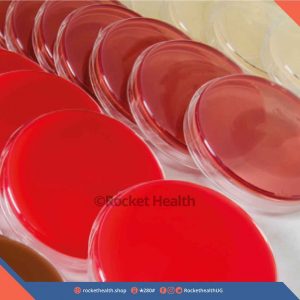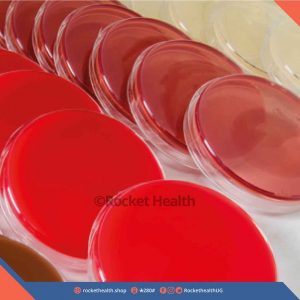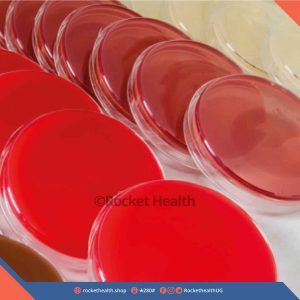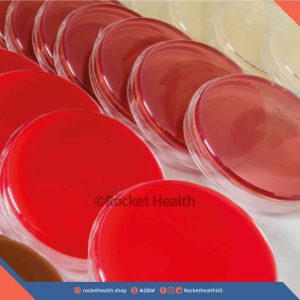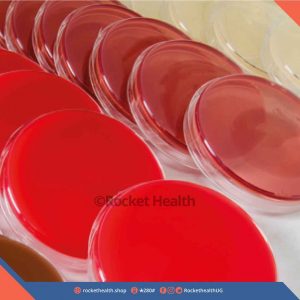No products in the cart.
RENAL FUNCTION TEST
This is a panel of blood tests that check if your kidneys are functioning well.
Blood.
No specific patient preparation protocol required. Inform your doctor if you are on any medications or have any underlying medical conditions or allergies before undergoing this test.
A group of tests that are performed together to evaluate kidney function. The tests measure levels of various substances, including several minerals, metabolites and electrolytes in the blood to determine the current health of your kidneys.
UGX 45,000RENAL FUNCTION TEST
UGX 45,000Glycosylated Haemoglobin test (HbA1c)
The hemoglobin A1c is a test that tells your average level of blood sugar over the past 2 to 3 months. It’s also called HbA1c, glycated hemoglobin test
Blood.
No specific patient preparation protocol required. Inform your doctor if you are on any medications or have any underlying medical conditions or allergies before undergoing this test.
Hemoglobin A1c, also called A1c or glycated hemoglobin, is hemoglobin with glucose attached. The A1c test evaluates the average amount of glucose in the blood over the last 2 to 3 months by measuring the percentage of glycated hemoglobin in the blood.
UGX 45,000Glycosylated Haemoglobin test (HbA1c)
UGX 45,000Free T3
This is a test used to evaluate the proper functioning of the thyroid gland and monitor thyroid treatment.
Blood.
Acute illness may affect thyroid testing test results. It is generally recommended that thyroid testing be avoided in hospitalized patients Inform the doctor if you are on any medications, have any allergies or underlying medical conditions before this test.
Triiodothyronine (T3) is one of two major hormones produced by the thyroid gland, the other major thyroid hormone is called thyroxine (T4) and together they help control the rate at which the body uses energy. If the thyroid gland produces excessive amounts of T4 and T3, then the person affected may have symptoms associated with overactive thyroid (hyperthyroidism), such as nervousness, tremors of the hands, weight loss, insomnia, and puffiness around dry, irritated eyes and in some cases, bulging eyes. Insufficient amounts of T4 and T3, then the person may have signs and symptoms associated with underactive thyroid (hypothyroidism) and a slowed metabolism, such as weight gain, dry skin, fatigue, and constipation
UGX 45,000Free T3
UGX 45,000Free T4
This is a test used to evaluate the proper functioning of the thyroid gland and monitor thyroid treatment.
Blood.
If you take thyroid hormone as treatment for thyroid disease, it is recommended that your blood sample be drawn before you take your dose for that day. Acute illness may also affect thyroid testing results so it is generally recommended that thyroid testing be avoided in hospitalized patients. Inform the doctor if you are on any medications, have any allergies or underlying medical conditions before this test.
Most of the hormone produced by the thyroid is T4. This hormone is relatively inactive, but it is converted into the much more active T3 in the liver and other tissues. If the thyroid gland does not produce sufficient T4 and T3 (underactive thyroid), due to thyroid dysfunction or to insufficient TSH, then the affected person experiences symptoms of hypothyroidism such as weight gain, dry skin, cold intolerance, irregular menstruation, and fatigue. If the thyroid gland produces too much T4 and T3, the affected person may experience symptoms associated with overactive thyroid (hyperthyroidism), such as rapid heart rate, anxiety, weight loss, difficulty sleeping, tremors in the hands, and puffiness around dry, irritated eyes and in some cases, bulging eyes.
UGX 45,000Free T4
UGX 45,000Thyroid- Stimulating Hormone (TSH)
This is a blood test that measures the amount of Thyroid Stimulating Hormone in the blood.
Blood.
If you take thyroid hormone as treatment for thyroid disease, it is recommended that your blood sample be drawn before you take your dose for that day. Acute illness may also affect thyroid testing results so it is generally recommended that thyroid testing be avoided in hospitalized patients. Inform the doctor if you are on any medications including multivitamins and supplements, have any allergies or underlying medical conditions before this test.
To help diagnose thyroid disorders and to monitor treatment of hypothyroidism and hyperthyroidism;sometimes a TSH test is used to screen newborns for congenital hypothyroidism.
UGX 45,000Thyroid- Stimulating Hormone (TSH)
UGX 45,000HEPATITIS C Antibody Test
This test checks for antibodies to the hepatitis C virus in blood. A positive result shows someone has been infected at some point and will need a follow-up.
Blood.
No specific patient preparation protocol required. Inform your doctor if you are on any medications or have any underlying medical conditions or allergies before undergoing this test.
Hepatitis C (HCV) is a virus that causes an infection of the liver that is characterized by liver inflammation and damage.
UGX 50,000HEPATITIS C Antibody Test
UGX 50,000LIVER FUNCTION TEST
This panel of blood tests helps to determine how well your liver is functioning.
Blood.
Inform your doctor if you are on any medications or have any underlying medical conditions or allergies before undergoing this test. Fasting of 8 hours is usually recommended before this test.
Liver function test is a set of blood tests used to monitor the working of the liver or to screen the liver damage or inflammation. . This test also measures the amount of certain enzymes and proteins in the blood. Some of these tests are helpful in estimating the performance of the liver functions like producing proteins, clearing of waste products in blood like bilirubin and some tests are used to measure the amount of enzymes that are produced by the liver which may indicate damage of the liver.
UGX 50,000LIVER FUNCTION TEST
UGX 50,000Estradiol
An estradiol test is a simple blood test to measure the amount of estradiol hormone during assessment of fertility or treatment.
Blood.
None, but early morning samples are preferred and the timing of a woman’s sample will be correlated with her menstrual cycle or, if pregnant, with the gestational age of the baby.
Estradiol (E2) is primarily produced in the ovaries under stimulation of FSH and LH in pre-menopausal women and in the testicles in men. E2 is converted from E1 in post-menopausal women. It is the most potent estrogen and the one that is present in the highest concentration in non-pregnant, pre-menopausal women. E2 levels vary depending on a woman’s age and reproductive status. They are a good marker of ovarian function. Increased or decreased levels of estrogens are seen in many metabolic conditions i.e. Hyperthyroidism, Cirrhosis, Turner syndrome, hypopituitarism, female hypogonadism, Polycystic ovary syndrome.
UGX 50,000Estradiol
UGX 50,000Follicle Stimulating Hormone
This blood test measures level of Follicle Stimulating Hormone(FSH) in the blood which is responsible for fertility.
Blood.
No test preparation is needed, but early morning samples are preferred and a woman’s sample should be collected at specific times during her menstrual cycle.
FSH is made by the pituitary gland located in the brain, In women of childbearing age, FSH stimulates the growth and maturation of eggs (follicles) in the ovaries during the follicular phase of the menstrual cycle. In men, FSH stimulates the testicles to produce mature sperm and also promotes the production of androgen binding proteins. Disorders affecting the hypothalamus, pituitary, and/or the ovaries or testicles can cause the production of too much or too little FSH, resulting in a variety of conditions such as infertility, abnormal menstrual cycles, or early (precocious) or delayed puberty.
UGX 50,000Follicle Stimulating Hormone
UGX 50,000Hepatitis B Core Antibody
The test is used to find out whether you are having an active infection with the Hepatitis B virus (HBV).
Blood.
No specific patient preparation protocol required. Inform the doctor if you are on any medications, have any allergies or underlying medical conditions before your this test
Hepatitis B Virus has a central core and a surrounding envelope. Your immune system makes IgM antibodies to the core of HBV during the active stage of infection.The presence of anti-HBc indicates previous or ongoing infection with hepatitis B virus in an undefined time frame. IgM antibody to hepatitis B core antigen (IgM anti-HBc): Positivity indicates recent infection with hepatitis B virus (<6 mos). Its presence indicates acute infection
UGX 50,000Hepatitis B Core Antibody
UGX 50,000Luitenising Hormone
This test measures the amount of luteinizing hormone in the blood. (LH) is a hormone associated with reproduction. Its stimulation of either ovary or testicles results in the release of an egg from the ovary (ovulation) in women or testosterone production in men.
Blood.
Early morning samples are preferred. A woman’s sample should be collected at specific times during her menstrual cycle. Inform the doctor if you are on any medications, have any allergies or underlying medical conditions before this test.
LH is produced by the pituitary gland. In women of childbearing age, several hormones (LH, follicle-stimulating hormone (FSH), estrogen and progesterone) rise and fall in a specific sequence during each menstrual cycle. In men, LH stimulates Leydig cells in the testicles to produce testosterone. In infants and children, LH levels rise shortly after birth and then fall to very low levels. Results of an LH test are typically considered with results of other hormone tests, such as FSH, estrogens, and/or testosterone.
UGX 50,000Luitenising Hormone
UGX 50,000Testosterone
This test measures the level of testosterone in the blood. Testosterone is the main sex hormone (androgen) in men. It is responsible for male physical characteristics. Although it is considered to be a “male” sex hormone, it is present in the blood of both men and women.
Blood.
Early morning samples are preferred. A woman’s sample should be collected at specific times during her menstrual cycle. Inform the doctor if you are on any medications, have any allergies or underlying medical conditions before this test.
Testosterone is mainly produced by special endocrine tissue (the Leydig cells) in the male testicles. It is also produced by the adrenal glands in both males and females and, in small amounts, by the ovaries in females.
UGX 50,000Testosterone
UGX 50,000PROSTATE SPECIFIC ANTIGEN (TOTAL)
Test used to screen for prostate cancer.
Blood.
No specific patient preparation protocol required
Prostate specific antigen (PSA) is a protein produced primarily by cells in the prostate, a small gland that encircles the urethra in males and produces a fluid that makes up part of semen. Most of the PSA that the prostate produces is released into this fluid, but small amounts of it are also released into the bloodstream. Prostate-specific antigen test indicates the presence of prostate cancer, prostatitis or an enlarged prostate gland in men.
UGX 60,000PROSTATE SPECIFIC ANTIGEN (TOTAL)
UGX 60,000Urine culture and sensitivity
A culture is a test to find the exact germs (such as bacteria or a fungus) that is causing an infection. A sensitivity test checks to see what kind of medicine, such as an antibiotic, will work best to treat the illness or infection.
Urine.
Do not take antibiotics for atleast 3 days before the test.
A test that demonstrates the presence of disease causing organisms in the body. Culture and sensitivity demonstrates the presence of disease causing organisms in the body and to identify which medicines can best eliminate them. In this test, disease causing organisms (most commonly bacteria and fungi) are grown in the laboratory (cultured) and medicines tried on them to determine which ones best work on them (sensitivity testing).
UGX 60,000Urine culture and sensitivity
UGX 60,000Stool analysis + Culture and sensitivity
A culture is a test to find the exact germs (such as bacteria or a fungus) that is causing an infection. A sensitivity test checks to see what kind of medicine, such as an antibiotic, will work best to treat the illness or infection.
Stool.
Do not take antibiotics for atleast 3 days before the test.
A test that demonstrates the presence of disease causing organisms in the body. Culture and sensitivity demonstrates the presence of disease causing organisms in the body and to identify which medicines can best eliminate them. In this test, disease causing organisms (most commonly bacteria and fungi) are grown in the laboratory (cultured) and medicines tried on them to determine which ones best work on them (sensitivity testing).
UGX 60,000Stool analysis + Culture and sensitivity
UGX 60,000High vaginal swab culture and sensitivity
A culture is a test to find the exact germs (such as bacteria or a fungus) that is causing an infection. A sensitivity test checks to see what kind of medicine, such as an antibiotic, will work best to treat the illness or infection.
Vaginal swab.
Do not take antibiotics for atleast 3 days before the test.
A test that demonstrates the presence of disease causing organisms in the body. Culture and sensitivity demonstrates the presence of disease causing organisms in the body and to identify which medicines can best eliminate them. In this test, disease causing organisms (most commonly bacteria and fungi) are grown in the laboratory (cultured) and medicines tried on them to determine which ones best work on them (sensitivity testing).
UGX 60,000High vaginal swab culture and sensitivity
UGX 60,000Pleural fluid culture and sensitivity
A culture is a test to find the exact germs (such as bacteria or a fungus) that is causing an infection. A sensitivity test checks to see what kind of medicine, such as an antibiotic, will work best to treat the illness or infection.
Pleural fluid (fluid in the chest).
Do not take antibiotics for atleast 3 days before the test.
A test that demonstrates the presence of disease causing organisms in the body. Culture and sensitivity demonstrates the presence of disease causing organisms in the body and to identify which medicines can best eliminate them. In this test, disease causing organisms (most commonly bacteria and fungi) are grown in the laboratory (cultured) and medicines tried on them to determine which ones best work on them (sensitivity testing).
UGX 60,000Pleural fluid culture and sensitivity
UGX 60,000Ascitic fluid culture and sensitivity
A culture is a test to find the exact germs (such as bacteria or a fungus) that is causing an infection. A sensitivity test checks to see what kind of medicine, such as an antibiotic, will work best to treat the illness or infection.
Ascitic fluid (abdominal fluid).
Do not take antibiotics for atleast 3 days before the test.
A test that demonstrates the presence of disease causing organisms in the body. Culture and sensitivity demonstrates the presence of disease causing organisms in the body and to identify which medicines can best eliminate them. In this test, disease causing organisms (most commonly bacteria and fungi) are grown in the laboratory (cultured) and medicines tried on them to determine which ones best work on them (sensitivity testing).
UGX 60,000Ascitic fluid culture and sensitivity
UGX 60,000Swab culture and sensitivity
A culture is a test to find the exact germs (such as bacteria or a fungus) that is causing an infection. A sensitivity test checks to see what kind of medicine, such as an antibiotic, will work best to treat the illness or infection.
Throat swab, Pus swab, Wound swab, Environmental swab.
Do not take antibiotics for atleast 3 days before the test.
A test that demonstrates the presence of disease causing organisms in the body. Culture and sensitivity demonstrates the presence of disease causing organisms in the body and to identify which medicines can best eliminate them. In this test, disease causing organisms (most commonly bacteria and fungi) are grown in the laboratory (cultured) and medicines tried on them to determine which ones best work on them (sensitivity testing).
UGX 60,000Swab culture and sensitivity
UGX 60,000

